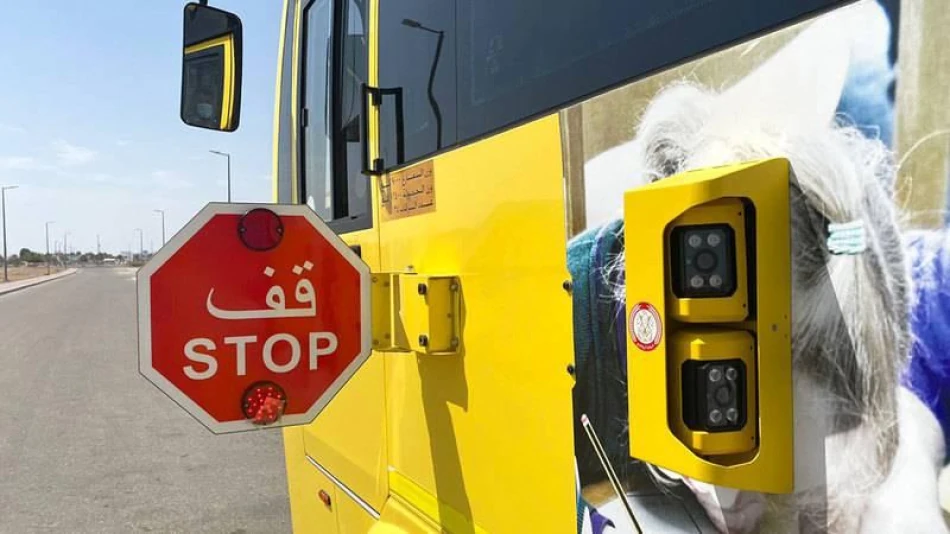
Navigating School Zones: Abu Dhabi Police Identify Top Traffic Violations
Abu Dhabi Police Launch Intensive School Safety Campaign as New Academic Year Begins
Abu Dhabi authorities are implementing stricter enforcement measures around schools as the 2025-2026 academic year commences, targeting three critical violations that have proven most dangerous to student safety. The campaign reflects growing concerns about traffic incidents near educational facilities, with penalties reaching up to AED 1,000 for the most serious infractions.
High-Stakes Violations That Could Prove Fatal
Major Khalid Obaid Al Dhaheri from Abu Dhabi Police's Traffic and Security Patrols Directorate identified the most dangerous violation: failing to come to a complete stop when school bus stop signs are deployed. This offense carries the heaviest penalty—AED 1,000 and 10 traffic points—because it poses the highest risk of fatal accidents involving children.
The enforcement reflects a zero-tolerance approach that mirrors similar campaigns in other Gulf states, where authorities have recognized that school zones require exceptional safety measures. Unlike general traffic violations, these penalties are designed to create immediate behavioral change rather than simply generate revenue.
The Five-Meter Rule
Police emphasized that drivers must maintain a complete stop at least five meters away from school buses in both directions—whether approaching from the front or rear—when stop arms are extended. This distance requirement acknowledges children's unpredictable movement patterns and provides crucial reaction time for emergency situations.
Pedestrian Safety Crackdown Targets Parents and Students
The second major focus involves unauthorized pedestrian crossings, carrying a AED 400 fine. Al Dhaheri specifically addressed parents and students, highlighting how random road crossings near schools create dangerous situations during peak drop-off and pickup times.
This approach differs from Western traffic safety models that often rely primarily on infrastructure improvements. Instead, Abu Dhabi is combining enforcement with behavioral modification, recognizing that cultural habits around pedestrian movement require active intervention.
Illegal Parking Creates Cascading Safety Issues
The third violation targets unauthorized vehicle stopping, which creates visibility problems and forces pedestrians into traffic lanes. While the specific fine wasn't detailed, this violation often compounds other safety risks by creating blind spots where children might emerge unexpectedly into traffic.
Technology Meets Traditional Policing
Abu Dhabi Police's comprehensive 2025-2026 academic year plan involves deploying early-morning patrols to high-density areas before school hours begin. This proactive positioning strategy aims to prevent violations rather than simply penalize them after incidents occur.
The approach represents a shift from reactive to preventive policing, similar to successful models implemented in Singapore and parts of the UAE where visible police presence has demonstrably reduced traffic violations in sensitive zones.
Regional Context and Broader Implications
The campaign comes as Gulf states increasingly prioritize traffic safety around educational institutions, responding to regional trends showing higher accident rates during school periods. Abu Dhabi's strategy of combining heavy fines with increased patrol presence reflects lessons learned from other emirates and international best practices.
The emphasis on phone usage while driving—identified as a major accident cause—aligns with global research showing distracted driving as a primary risk factor in school zones. By specifically targeting this behavior during school hours, authorities are addressing a problem that traditional speed limits and infrastructure changes cannot fully resolve.
The success of this initiative will likely influence similar campaigns across the UAE and potentially other Gulf states, as regional authorities increasingly share traffic safety strategies and enforcement techniques.
Most Viewed News

 Omar Rahman
Omar Rahman






